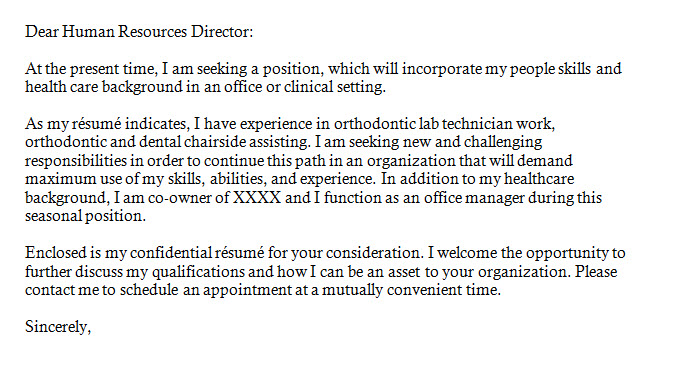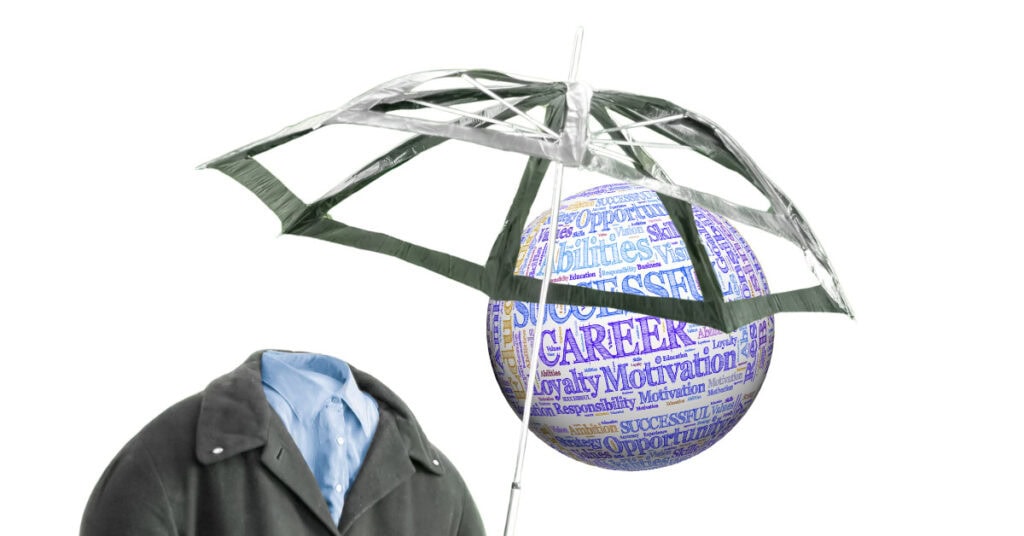6 misconceptions about cover letters!
The question of cover letters one asked since I started in the career industry.
- When do you use one?
- What are they?
- Do I use one at all?
To clarify, I asked my colleague, Dawn Bugni from The Write Solution to join us to help list and talk about the confusing definitions and misconceptions of cover letters:
Misconceptions
1. → That’s a sheet you put on the top with your name on it, right?
2. → Every cover letter is read, 100% of the time, in the order intended by the sender — before the resume. WRONG (from Dawn Bugni)
3. → Cover letters tell the employer what you want from them and when done correctly, is filled with “I, me, my” statements. WRONG (from Dawn Bugni)
4. → Cover letters are a regurgitation of resume content or your resume in narrative form. The reader wants to read the same info twice. WRONG. (from Dawn Bugni)
5. → A cover letter is optional. WRONG. (Unless the posting specifically states “No cover letters”. Then follow directions.) (from Dawn Bugni)
6. → Can you just do generic cover letters that I can slap on the top of my resume for everyone? You know one like this:
 What’s wrong with this?
What’s wrong with this?
It is written without targeting the position at all. You have no idea what specifically the job seeker is looking for in a position.
A cover letter is never a blanket. It is a sales tool that from the start lets the reader know why you are sending your resume to them. (From Dawn Bugni)
You are selling YOU! You are the product.
Here’s a snapshot of a cover letter start for one of my recent clients.
 Strategies differ for cover letters
Strategies differ for cover letters
Essentially, cover letters are sales tools to help you convey your value to the employer for the specific job.
- The resume does that too but you generally don’t have to fine-tune the resume to meet the exact specifications of each position. The cover letter does that for you.
- Like a resume, the cover letter needs to portray value, speak about how your accomplishments will transition to the needs of the company, and solve the company’s “pain”.
This post is just the tip of the iceberg but it should help to get you thinking about what the job of a cover letter is and why you need one. Always think target and selling when you are planning to write a cover letter which will help you be on the right page as you write.
To get your job search working for you, simply click here!
27 Comments
Resume Design and Job Seeking Tips
Here are Design Resumes' latest articles on job search, resume design, resume writing, and Linkedin optimization articles I've written.
Julie Walraven
Professional Resume Writer
Here are ways I can help you land your dream job.
You may be halfway across the country or the world. When you work with me, we share coffee, laughs, and concerns. This turns the scary job search into creative, consultative writing and learning sessions.






This is a terrific post; and I really agree with your sample cover letter. I myself have several sample letters for different situations and they all align nicely with your thinking(and I’ve been doing this for 26 yrs). You presented in a short, “on-the-nail” post, everything one needs to know. I applaud you guys for being so “right-on”!!
Rob
Thanks, Rob, I appreciate the comment and the compliment! I’ve been in the career industry since too long too 🙂 Thank you, Dawn and I met in the industry and this morning while I was writing I was “talking” to her on Twitter and I asked her for some quick cover letter misconceptions… She’s quick. I wrote the rest of the post, and there you have it. Thanks for the encouragement on LinkedIn too!
Thank you, Paul. Nice to have you stop by.
Had to chuckle to myself as I just completed an important cover letter. I take pride forming ideas on how to present myself for that unique, special position. I actually enjoy writing them.
Thanks for stopping by John, it feels like a victory when you succeed, doesn’t it!
Julie –
Always a pleasure doing mind melds with you!
Hugs,
Dawn
Yes! Always!
Hi Paul,
I’m curious why you suggest the cover letter be three short and snappy paragraphs — and not more.
Now we are being double teamed! The world better watch out when you and Dawn get together!
After I read this everyone better take cover because me head will explode from all the information I just absorbed!
Glad it was helpful, Kimba… Dawn and I collaborate fairly frequently so you will have to watch out! Seriously, Dawn and I are friends and colleagues and value each other’s expertise so we do often touch base on topics. This post originated with a DM on Twitter.
I’m curious to know what the cover letter strategy should be when you are responding to a blind ad where the company isn’t identified, or a job description which is very limited and vague.
Though there may be merit to some blind ads, I am not fond of them in general. I have to wonder at the strategy of the company for not posting who they are. Are they firing someone and haven’t told them yet? Are they testing the waters? I think there are better ways to spend your time than answering blind ads or vague job descriptions. With a vague job description from a company that posts its name, however, you can certainly also do research on the company website, you can look for people you know on LI or in your network and do informational interviewing, or you could call and ask for more information.
I still like to receive a hand-written covering letter, I think the way someone writes is very revealing, or perhaps I’m just being old fashioned.
Interesting, Toni, I wonder if that is more normal in the UK? In the US, cover letters are usually typed and the jury is out on whether or not thank you letters should be typed, e-mailed, or hand-written.
I think this post has clearly stated the various issues and mistakes committed by many professionals these days and end up loosing a good job.
Hello Julie,
Nice piece of advice for the readers on how actually one should draft a cover letter. As it is the key to get the relevant job.Don’t ignore the power of a cover letter.Treat it with the same care you used for your resume.Don’t rush through it . Check all your facts.
Regards,
Carol Wilson